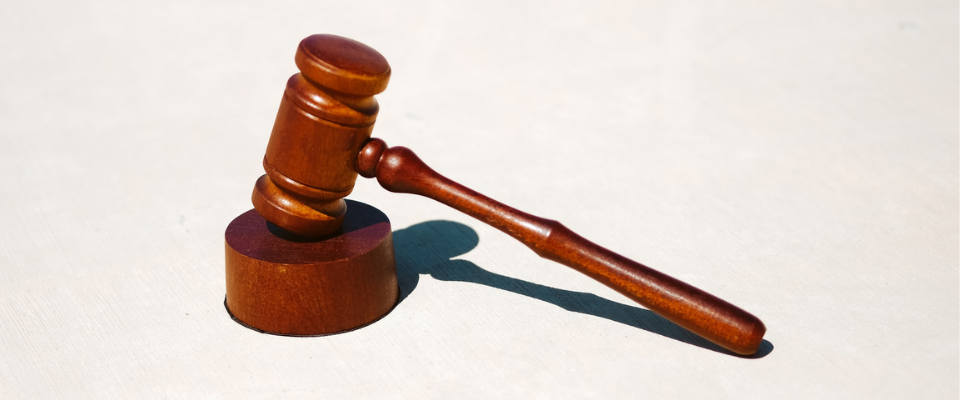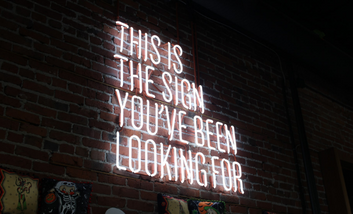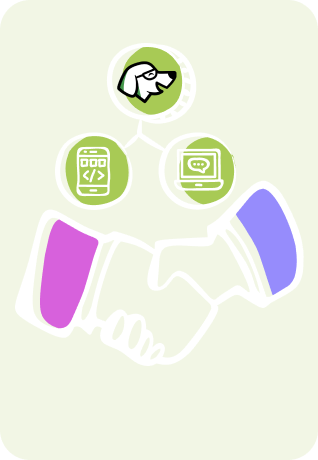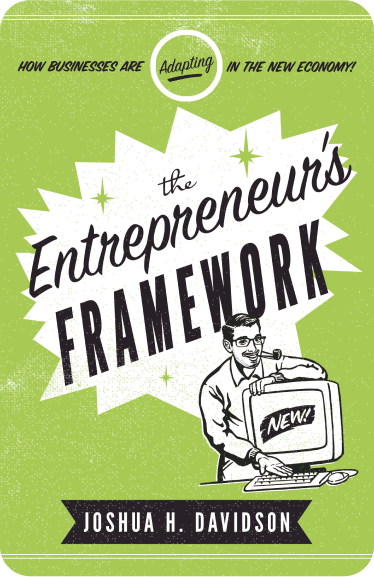Spring has already sprung and so many big things have happened so far in tech in 2024. If you want to see our roundup for the first month of the year, you can take a look at our January Tech News Roundup here!
In this post, we will take a look at some of the biggest stories in tech as we move into spring 2024.
Nvidia Announces New Blackwell Architecture
Nvidia is building the power in its line of artificial intelligence chips. On Monday, the company announced its Blackwell GPU architecture. This took place at its first in-person GPU Technology Conference in 5 years.
TechNewsWorld reports:
According to Nvidia, the chip, designed for use in large data centers — the kind that power the likes of AWS, Azure, and Google — offers 20 PetaFLOPS of AI performance which is 4x faster on AI-training workloads, 30x faster on AI-inferencing workloads and up to 25x more power efficient than its predecessor.
Ndivia says that, compared to its predecessor, the H100 “Hopper,” the new B200 Blackwell is far more powerful and energy efficient.
However, not everyone is an instant fan. Sebastien Jean, CTO of Phison Electronics, was critical of the new Blackwell Architecture. He called it “a repackaging excersize.”
Jean told TechNewsWorld that “from a technologist perspective, they just squished it smaller without really changing anything fundamental.”
However, he also admitted that Blackwell will empower users to compute faster while using the same power and space budget.
This is an incredible benefit for users.
Microsoft Hires DeepMind Co-founder
Microsoft is known for being heavily involved the current wave of AI technology. The corporation has invested heavily in its internal capabilities. It is also a well-known investor in partner companies like OpenAI, which is known for the viral Chat GPT technology.
Recently, Microsoft hired co-founder of pioneering British AI startup DeepMind Mustafa Suleyman to run their new AI division. He will be the divisions Chief Executive.
Microsoft CEO Satya Nadella wrote, in a blog post announcing Suleyman’s appointment:
“This is about science, engineering, product, and design coming together and embracing a learning mindset to push our innovation culture and product-building process forward in fundamental ways.”
Suleyman has a long history of groundbreaking work in the world of AI. He co-founded the london-based startup DeepMind in 2010. He served as both its chief product officer and head of applied AI.
Deepmind was acquired by Google in 2014. After its acquisition, Suleyman spent 2 years as the VP of AI product management and AI policy.
The FCC Introduces New Program for Consumer IOT Products
Internet of Things has been a hot topic over the last few years. This month, the Federal Trade Commission (FCC), voted to make a voluntary cybersecurity labeling program for all consumer IOT products.
The work of the FCC is to regulate interstate and international communications through cable, radio, television, satellite, and wire. They also aim to maintain a healthy and competitive market that favors consumers.
Some of the highlights of this new program include:
- The US Cyber Trust Mark logo will appear on the wireless consumer IoT products that meet the program’s cybersecurity standards. This will help consumers make smarter decisions when purchasing these products.
- The logo will be accompanied by a QR code. Consumers can scan this QR code for details about the product. These will be presented in a way that is straightforward to understand.
- The voluntary program will rely on public-private collaboration. The FCC will provide oversight while approved third-party label administrators manage key activities. This will include product application evaluation, label use authorization, and consumer education too.
- Compliance testing performed by accredited labs.
A number of IOT products will be eligible for this program.
Eligible products may include home security cameras and voice-activated shopping devices. Many internet-connected appliances, fitness trackers, garage door openers, and baby monitors will also be eligible.
European Tech News: Apple, Meta, and Google Will Be Investigated by the EU

The EU will investigate these tech giants for alleged anticompetitive practices. This is due to potential the breaches of the Digital Markets Act (DMA). This act was introduced in 2022.
If these firms are found guilty of breaking the rules, they may have to pay 10% of their annual turnover in fines.
Only 6 of the world’s largest tech companies have obligations under the DMA. These are Alphabet, Apple, Meta, Amazon, Microsoft and ByteDance. This month the companies submitted their DMA compliance reports to the EU. Now Google, Apple, and Meta are facing questions.
In the past few years, there has been significant legal action against the world’s largest tech companies. So far in 2024, the EU fined Apple over $1 billion for breaking EU competition laws when it comes to music streaming. Meanwhile, in the US, a landmark lawsuit accusing Apple of monopolizing the smartphone market began this year.
According to the BBC, the EU will make 5 separate investigations into potential acts of non-compliance as a part of these proceedings. These are:
- 1 & 2 – Whether Apple and Alphabet are not allowing apps to freely communicate with users and make contracts with them
- 3 – Whether Apple is not giving users enough choice
- 4 – Whether Meta is unfairly asking people to pay to avoid their data being used for adverts
- 5 – Whether Google preferences the firm’s own goods and services in search results
The EU has decided to take quick action in these matters.
According to Dr Rupprecht Podszun, director of the Institute for Competition Law at Heinrich Heine University in Dusseldorf:
“The cases that the Commission has selected go to the heart of the business models; these are not marginal issues for the gatekeepers. The legal battles will be tense, but we must always bear in mind that the Court of Justice will have the last word.”
The issues the EU is exploring affect all device and internet users globally.
An Interesting Update from Elon Musk’s Nueralink
In our last tech news roundup, we noted that Elon Musk had tweeted saying that Nueralink’s first-ever patient had gone under surgery and recieved one of their brain chips.
The patient has been revealed and showed online using nothing but his thoughts to control a mouse and play online chess. The patient is 29 year old Noland Arbaugh. Arbaugh had previously been paralyzed below the shoulder due to a car accident.
You can take a look at the video here. Arbaugh said that the surgery was “easy.”
Elon Musk has previously said the goal of the brain chip is to eventually empower users with disabilities, like the late Stephen Hawking, to “communicate faster than an auctioneer”.
He has also made claims that the chip will cure a variety of unrelated conditions. These include everything from obesity to minor and severe mental illness.
Experts in the field have expressed that while many researchers are active in this field few have made it to the stage of implanting a chip in a living human.
While this is an impressive achievement, it should undergo peer review and be rigorously studied before we come to conclusions, like any other scientific advancement.
The Financial Times Tests AI Chatbot Trained On Its Own Articles

One of the biggest controversies surrounding AI is that of intellectual property. AI companies, such as the famous OpenAI behind the viral ChatGPT, scrape the internet indiscriminately for data. They then use this data to train their AI algorithms, which produce ‘new’ content.
However, many authors, artists, and news organizations that create a variety of content, say that it is a form of intellectual property theft. After all, these companies indiscriminately harvest the data of those who have created original work and use it without their consent or any form of compensation.
That is why it is so interesting to see a company build out their own AI using what they already own, removing those potential legal and ethical questions.
The Verge reports that The Financial Times has a new generative AI chatbot called Ask FT. It can answer questions that its subscribers ask. It is similar to other generalized AI bots (like ChatGPT or Copilot).
However, a few big things make it different. For one, Ask FT draws its answers from only one source, decades of published content from the Financial Times.
When you use many other AI bots, you have no idea where its answers are actually coming from. Considering that there is so much misinformation and so many bad actors online, this is not a good precedent to set.
It may play a part in many users simply getting the wrong answers. In fact, one study from Purdue found that ChatGPT delivers incorrect answers to end users over half of the time.
Another thing that sets Ask FT apart is that it shows the sources of its answers. As an example, The Verge queried Ask FT “Who runs Microsoft’s AI products?”
The AI chatbot returned this answer:
Mustafa Suleyman currently runs Microsoft’s consumer-facing AI products and division as the head of Microsoft AI, reporting directly to Satya Nadella [1,2,3]. He was brought in from Inflection AI to expand Microsoft’s focus on developing generative AI for personal consumer use [1,2,3,4,6].
According to The Verge:
The bracketed numbers correspond to the FT articles it pulled information from, which it lists beneath the answer. It also provides the time period when these articles were written. In the case of this Microsoft question, it says it pulled information ranging from March 1st, 2023, to March 20th, 2024.
However, they report that they did find some inconsistencies when it comes to the quality of Ask FT’s output. For example, when asked who is running for president in 2024, it included the names of politicians who had already dropped out.
Final Thoughts on Current Tech News
As you can see a lot of fascinating things are happening when it comes to tech! The new Nueralink chips to international legal battles which will have profound impacts on the world of tech as a whole.
What do you think? Comment below.
Since 2009, we have helped create 350+ next-generation apps for startups, Fortune 500s, growing businesses, and non-profits from around the globe. Think Partner, Not Agency.
Find us on social at #MakeItApp’n®

















